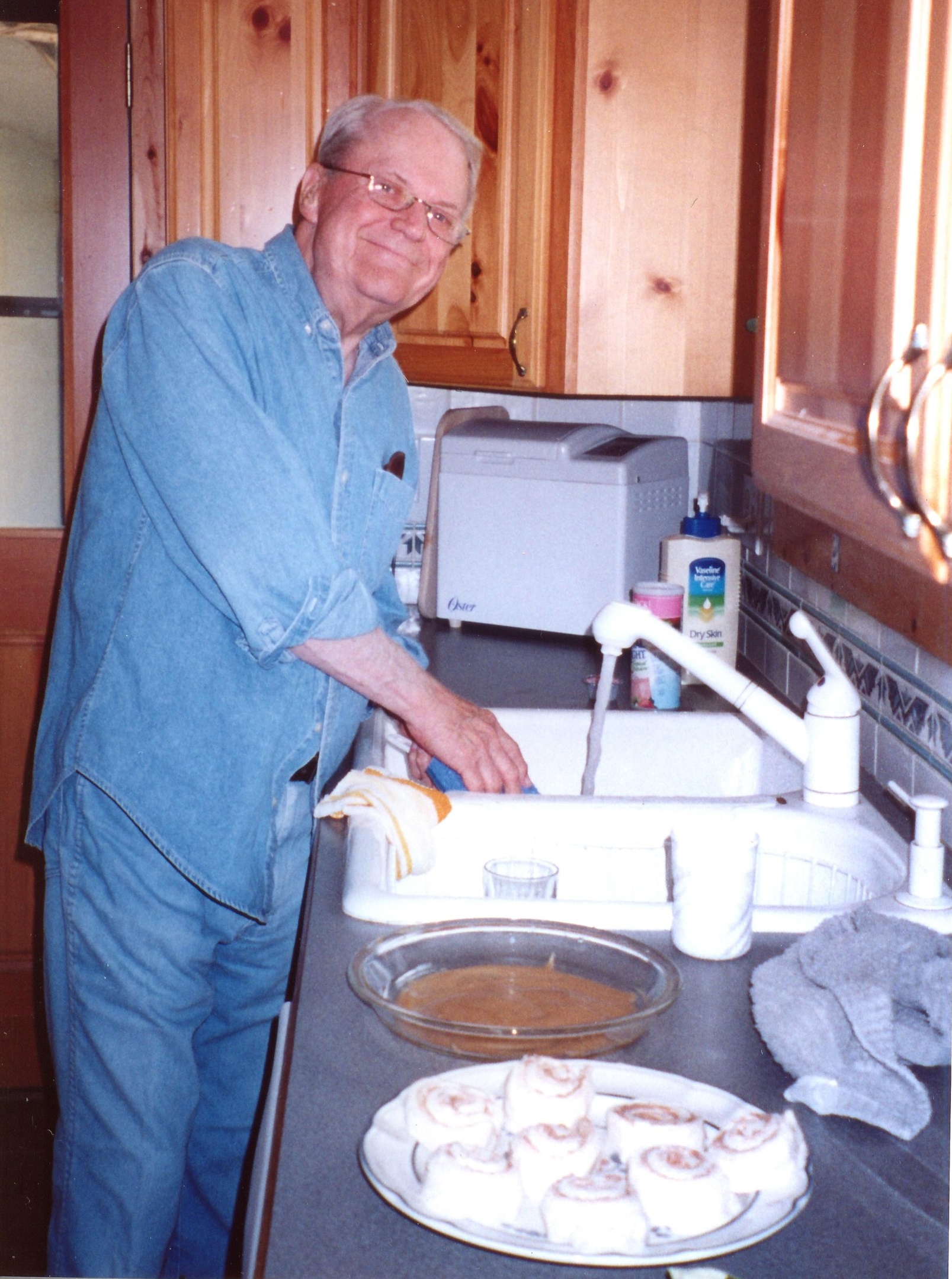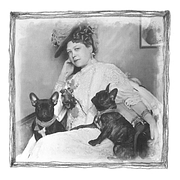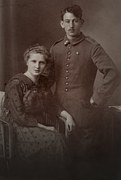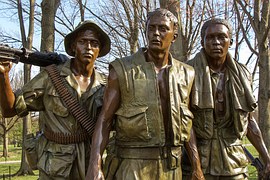by kdwyer | Nov 14, 2017 | General
Do superstitions about death make it hard to ask elders for their stories?
I met a young mother while dropping my grandson off at his preschool the other day. We were chatting a little about the sweet stories that children this age tell us about their day. I mentioned that one highlight of my work is discovering childhood stories from the older generations. Her response went something like…..
“Oh, I would love to do that! I am longing to get my grandmother’s stories – the ones she sometimes tells us at holiday dinners or when I visit her on her birthday. But, I just never seem to write them down!”
“Couldn’t you set up a separate time to talk with her?”, I suggested.
“Oh, no, I couldn’t do that. I’m too afraid!”
“You’re afraid of your grandmother?”
“No!”, she chuckled, “What I mean is – it would upset her. She would think I was implying she is about to die, and in my family, DEATH IS NOT something you talk about. She would get offended and then my whole family would be angry with me!
“I think I understand.”
“I know it doesn’t sound like it, but I truly do want to have those stories,” she continued. “I know that pretty soon she won’t be around anymore – it’s very frustrating.”
 Internal Family Dynamics Matter
Internal Family Dynamics Matter
The story above reminds us that family dynamics play an important role in how and when stories are passed down to and from us.
Whether it’s stubbornness, superstition, or our own fear of talking about death, sometimes fear gets in the way of capturing life stories. Family rules may be so strong on certain topics that we are forced to wait for the dynamics to change (i.e. marriage, divorce, or a period of a generational shift) before stories are told.
So, when is it appropriate to ask for stories?
It is not surprising that family gatherings are good places to hear stories about your family, especially when relatives come to visit from far away.
Seize Opportunities
Weddings, funerals, holiday mealtimes, vacation car rides, on walks, or even while waiting at the doctor’s office or hospital are times when you hear interesting reminiscences. You may be tempted to be browsing your social media at your such a gathering, but I think you will find it rewarding to turn on your smart phone’s recorder instead!
Investigate Indirectly
You can discover all kinds of stories that don’t involve direct discussion of a taboo subject by focusing your questions on how people overcame a challenging situation. Steer your questions toward life-affirming reactions to difficult circumstances. For example, if Aunt Betty is a widow and your family avoids talking about her husband’s death directly, you might ask what aunt Betty decided to do, or change, that helped get her through that difficult time. We all have challenging situations of one manner or another in our lives, and we can learn from one another’s approach to getting through them.
When is it inappropriate?
Merely wanting the stories may not be enough to overcome unspoken rules about avoiding certain topics. In my own family, we freely spoke about relatives who died from war, cancer, and old age. Those were met with sadness, not forbidden. However, I can think of at least two instances in which I felt the topic of death was to be avoided or would be in breach of trust to discuss.
A) When speaking to a person with mental illness. Speaking with my own mother about her Alzheimer’s disease, or about anyone’s death did not end well. Especially later, as her disease progressed, those attempted conversations resulted in her complete confusion and distress. So, my family naturally avoided those topics with her.
B) When someone died from murder or suicide. I have unknowingly plundered into asking questions about someone in a print photograph, only to receive glares accompanied by head shaking and kicks under the table, to get me to cease and desist! I was later told in confidence that the topic of that deceased person is too emotionally painful to be discussed in a casual situation.
A Pocketful of Tips on Asking for Family Stories
1) Approach With Love
Rather than expressing concern that your loved one is near death, approach your loved one with your heartfelt desire to hear about their childhood and the events that shaped their life! Let them know you feel its important for you to understand their perspective now, rather than later. Ensure them you want to listen, then make a very concerted effort not to interrupt when they start to tell a story. Avoid interjecting your own story or any of your own opinions.
2) Make Sessions Fun!
- Listen in casual, informal settings.
- Don’t try to get all the stories at once. Start with just one or two (you can add more later).
- No need to write things down. Just ask if you can record their voice on your smartphone.
- If they don’t know what to say:
- Suggest describing a few of their favorite photos
- Ask about the funny stories
- What favorite foods did they like as a child?
- Who was their favorite relative at holiday time?
3) Tell them how happy you are to have some of their stories!
Everyone likes to get praise for helping. Let your loved one know you appreciate the things they shared.

Did you know……People talking freely about death has been expanding around the world since 2011.
The Death Cafe movement has reached over 4000 communities in 50 countries. These are casual forums for people who wanted to bat around philosophical thoughts. What is death like? Why do we fear it? How do our views of death inform the way we live?
Even though the movement’s name contains the “D” word, people often talk less about how to die than how to live!
I hope this topic has encouraged you to ask your favorite people for some of their life’s lessons, advice, and history during the coming holidays. It’s important to get the oral histories recorded now. You can decide what to do with them later. I’d love to hear about your experiences of asking for stories. Thanks for listening!
I hope this topic has encouraged you to ask your favorite people for some of their life’s lessons, advice, and history during the coming holidays. It’s important to get the oral histories recorded now. You can decide what to do with them later. I’d love to hear about your experiences of asking for stories. Thanks for listening!
by kdwyer | May 28, 2017 | General, Uncategorized
 This Memorial Day we pay tribute to our fallen veteran’s contributions to American freedom. It reminds us that the phrase “Freedom isn’t Free” is not just words, but a value. With this value, some very important things have been accomplished by a small number of people for the benefit of many.
This Memorial Day we pay tribute to our fallen veteran’s contributions to American freedom. It reminds us that the phrase “Freedom isn’t Free” is not just words, but a value. With this value, some very important things have been accomplished by a small number of people for the benefit of many.
When I see the U.S. flag, I see every color in the fabric as a part of their story and part of their commitment to me and to you.
The way we honor those who’ve sacrificed for us and our country is a measure of our heart. Not only must we be thankful for the freedoms that we have and remember the sacrifices and courage that the fallen veteran has made, but we also must honor their families who supported the efforts for peace and freedom. For without their family’s dedication, those heroes may not have been able to achieve their unselfish deeds.
When you see a Veteran, ask them to tell their stories
Veteran’s stories can enrich your family. Be prepared to save the stories….write them down, record them, tell them to one another. Younger generations are interested to know what it was like.
You may be surprised when you interview a veteran to find that life in the military has many facets beyond war experiences. Friendships, humor, and revelations are more the norm.
Thank you for taking the time to honor our veterans and their families by asking for and listening to their stories. In this way, we never forget their deeds or their sacrifice.
Look for our book of tips on interviewing veterans, coming soon. Sincerely – Kit Dwyer
by kdwyer | May 12, 2017 | General, Uncategorized

New Design! – This week we are excited to share our new web design and logo! We hope this will help you to better discover valuable information and services.
The open-hand represents the precious holding of stories that are shared. The memories we capture are handled with great care, love, and respect. Each life story is a unique resource on which generations to follow can build their future.
The Leaves are little gems from a larger treasure – all the things I love about trees!
- Stem and vein patterns remind us that we are a part of life’s web, all interconnected.
- Leaves have infinite shapes, sizes, colors, and combinations of colors that change over time, like us and our stories.
- In science, we learned that leaves breathe in their surroundings and exhale life-giving qualities. Scientific studies have also shown that by sharing family stories, next generations gain a good emotional foundation and resilience to life‘s challenges!
When I was little, I learned to preserve leaves and flowers by selecting the best gems, drying or pressing them inside books, describing them, and artfully arranging them with photographs and drawings. Having a background in biology, I also understand how dying and dead leaves contribute to the nourishment of the next generation of living things.
What a perfect metaphor for the preservation of our life stories!
What’s in the Name? “Firsthand” is part of our company name because our ultimate goal is to preserve people’s unique voice, their words of wisdom and experience from their own telling. “Memories” are the individual stories, which no one else can tell. If you’ve read a little about me, you know that my mother, like so many others, lost her memories to Alzheimer’s disease. I became all too well acquainted with the fleeting nature and priceless value of memories, realizing that unless we take steps to save them, we may deeply regret waiting too long.
I hope you enjoy the new design as much as we do! (Kit Dwyer)
by kdwyer | Mar 5, 2017 | General, Writing
Have you lost, or lost touch with, someone who was an extraordinary influence on your life?
How do you hold onto that influence, long after they’re gone? Writing and speaking your thoughts about that person can bring them back into a view for you.
The following little piece was originally written just for my own reflection. I am sharing it with you now, in hopes it may inspire you to capture the qualities of the strong influencers in your life.

My Extraordinary Dad
My Dad was Extraordinary
“ Even though I saw him doing only ordinary things, the ‘extra’ of my dad’s ordinary life was the care given his family and of living his life with integrity.
He was a very humble man, so I never heard directly about any accomplishments outside our family. I have always regretted not being able to interview some of his early friends and colleagues so that I could have understood more about his hidden deeds.
What makes a person extraordinary, though, is not always larger-than-life deeds. To me, extraordinary living is having a strong vision, where you hold fast to your dreams in the face of uncertainty. It is being calm in the storm, seeing the good along with the bad, taking notice and sharing your notice, of small blessings along the path you have chosen.
My dad was a teacher/storyteller to me. His perspective influenced the way I react to things in my life. A voracious reader, he knew a little about a lot of things. He delighted in repeating a joke, explaining how a process worked, and especially clarifying the importance of honesty. When I would ask him how he knew about so many things, he would say, “Well, I read, and I read a lot!” True to his explanation, most evenings one could find him reading newspapers and books.
Coming from a household of 11, where having anything of your very own was scarce. He often considered something a luxury that might be considered trivial by another. Because his family was always “making do” with what was available, when he moved away from home, he remembered relishing the opportunity to eat a whole chocolate candy bar without sharing it.
I think my dad learned early on that there is exquisiteness in the natural world. His most memorable stories included accentuated descriptions using whichever of our senses allow us to experience those wonders. I hardly remember a private family time when he didn’t express how he appreciated the world around him – how good the air smelled, why the stars twinkled, how soil sustained, tastes elated, cold penetrated, flowers surprised, birds mesmerized, or the sea awed.
I was being taught to notice and have gratitude for small successes in life. He told stories like: when we taste a new food, it is a gift to our noses, and to all the thousands of tiny taste buds on our tongues, sending signals to our brains; or he would say: see that light from the stars? It has traveled billions of miles through space, in a straight line, to reach our eyes! His storytelling body language was intriguing too. When he told stories, it was with a slight whisper of excitement, making you want to lean in to grab the best morsel of a shared secret!

I would say my father was also a sensitive man, for the stories did not stop at the wonders of nature. I remember stories with themes like the human heart, emotion, and drive; patriotism exacerbated by war; the downfall caused by greed; the heroism of service; loyalty of a dog; love for another.
At times, his eyes held back tears – maybe not from heartfelt wonder or love, but rather, an unspoken sadness. In the end, I wasn’t sure if they were tears of hopelessness; as if deeply troubled, unwilling or unable to share his deepest fears, or take solace in the abundance in his midst.
May you rest in peace, my steadfast hero, loyal provider, stayer-of-the-course. I am so fortunate to have been taught by you how to appreciate the world, feel love, and to walk with head high.” (Kit Dwyer, 2010)
Treasured Memories
I treasure the memories of many people who have influenced my life. Writing about them memorializes my version their story, unlike the stories that anyone else knows.
Have you saved a story about an extraordinary influencer in your life?
by kdwyer | Nov 4, 2016 | General
 Why Should We Share Memories?
Why Should We Share Memories?
Not only are we finite, but each perspective is unique! I’ve outlined seven reasons why saving and sharing memories is important…. Do you have more?
1. Put Names and Stories with Old Family Photos
Preserving old photographs and early home movie footage allows us to visualize the past and get to know family members that we’d otherwise never get to meet. Most older photographs were, considered an investment of time and money and were reserved for special events and locations. Reviewing the names and dates that go with your family photos can help piece together a broader family or business history.

2. Share Wisdom & Lessons You’ve Learned
What were the things that influenced the decisions in your life or business? Future generations will learn a lot from knowing how things came about and why.

3. Celebrate Pride & Gratitude |Honor Deeds |Leave a Legacy for Future Generations
Honoring the deeds of important people in your life is another aspect of legacy writing. Your thoughts and perspectives can be documented in ethical wills, legacy letters, and memoir books. Audio and video recordings are also ways to share the stories about what was important to you.

4. Connect Generations |Bring Life to the Family Tree
When you tell the stories behind the people in your ancestry, future generations are better able to understand the circumstances, character, and personalities of those that came before them.

5. Bear Witness to Events that Affected Many |Tell Your Side of the Story
Sometimes there is a hidden side to an event or story that can be uncovered. Opening a wider perspective can create understanding and respect of what happened in the past.

6. Contribute to History |Give Back to the Community
Your story is unique and valuable as part of the community in which you live or come from. Many historical societies and community organizations are looking for personal histories to fill their archives.

7. Gain Insight into Forces That Shaped Your Life | Find Direction for the Rest of Your Life
Documenting how life’s struggles were overcome can be cathartic. Gaining these insights can be healing to both individuals and families.

by kdwyer | Aug 19, 2016 | General

Click photo link to view CBS article.
Hi Reader! Today, Colorado 4News reported that a first-time mom, Taylor Masilotti, had the wherewithal to share her unborn baby via ultrasound with her dying mother. The video captures Taylor and her mom, laying in the same hospital bed so that Taylor’s mom could “meet” her grandchild before it was too late. Taylor’s mom ended up dying, just three days after the filming.
Taylor said that when her daughter ultimately grows up, she might cherish being able to see her grandmother loving her before she was even born. Is this a heartwarming way of preserving this memory? What are your comments about this video and it being shared on national news? Do you find it sweet, or have some other feeling about it?
 Internal Family Dynamics Matter
Internal Family Dynamics Matter

 This Memorial Day we pay tribute to our fallen veteran’s contributions to American freedom. It reminds us that the phrase “Freedom isn’t Free” is not just words, but a value. With this value, some very important things have been accomplished by a small number of people for the benefit of many.
This Memorial Day we pay tribute to our fallen veteran’s contributions to American freedom. It reminds us that the phrase “Freedom isn’t Free” is not just words, but a value. With this value, some very important things have been accomplished by a small number of people for the benefit of many.

 Why Should We Share Memories?
Why Should We Share Memories?






